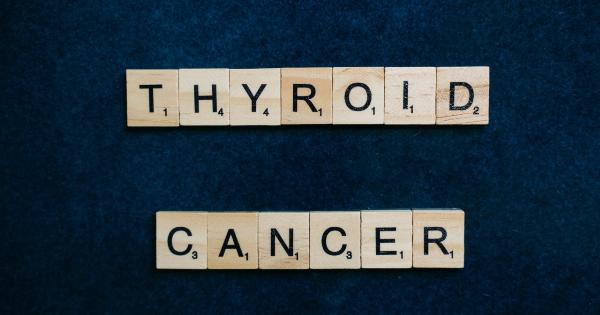Thyroid cancer is one of the most common types of cancer. It occurs in the cells of the thyroid gland, which is located in the neck and produces hormones that regulate the body’s metabolism.
Although thyroid cancer has a high survival rate, the risk of recurrence is a major concern for patients.
What is a Thyroid Cancer Recurrence Prediction Test?
A thyroid cancer recurrence prediction test is a diagnostic test that can help predict the likelihood of thyroid cancer recurrence.
This test is usually recommended for patients who have undergone treatment for thyroid cancer, but still have residual cancer cells remaining in their body. The test can also be useful for patients who have undergone surgery to remove their thyroid gland and want to monitor their risk of recurrence.
How Does the Test Work?
The test works by analyzing the genetic material of the patient’s remaining cancer cells. Specifically, it looks for changes in the DNA sequence that may indicate an increased risk of cancer recurrence.
These changes may include alterations in the expression of certain genes or the presence of specific mutations.
Who Should Get a Thyroid Cancer Recurrence Prediction Test?
The National Comprehensive Cancer Network (NCCN) recommends that all patients with thyroid cancer undergo molecular testing to assess their risk of recurrence.
However, the decision to get tested is ultimately up to the patient and their healthcare provider.
Patients who may benefit from a thyroid cancer recurrence prediction test include:.
- Patients who have undergone treatment for thyroid cancer (surgery, radiation, chemotherapy) and have residual cancer cells in their body
- Patients who have undergone surgery to remove their thyroid gland and want to monitor their risk of recurrence
- Patient who have a family history of thyroid cancer
What Can the Test Results Tell You?
The results of a thyroid cancer recurrence prediction test provide important information about a patient’s risk of cancer recurrence.
Specifically, the test can help identify patients who are at high risk of recurrence and may benefit from more aggressive treatment or closer monitoring. The test can also identify patients who are at low risk of recurrence and may not require additional treatment beyond routine monitoring and surveillance.
How Is the Test Administered?
The test is typically administered using a biopsy or blood sample. For a biopsy, tissue samples are taken from the patient’s thyroid gland and analyzed in a laboratory.
For a blood test, a sample of the patient’s blood is drawn and sent to a laboratory for analysis.
What Happens if the Test Indicates a High Risk of Recurrence?
If the test indicates a high risk of recurrence, the patient’s healthcare provider may recommend additional treatment or closer monitoring.
This may include more frequent follow-up appointments, imaging tests (such as ultrasound or CT scans), or additional rounds of chemotherapy or radiation therapy.
What Happens if the Test Indicates a Low Risk of Recurrence?
If the test indicates a low risk of recurrence, the patient’s healthcare provider may recommend routine monitoring and surveillance, such as regular physical exams and imaging tests.
In some cases, the patient may not require additional treatment beyond their initial cancer treatment.
Conclusion
A thyroid cancer recurrence prediction test can provide important information about a patient’s risk of cancer recurrence and inform their treatment plan.
Although the decision to get tested is ultimately up to the patient and their healthcare provider, all patients with thyroid cancer should be aware of the option and discuss it with their provider.




























